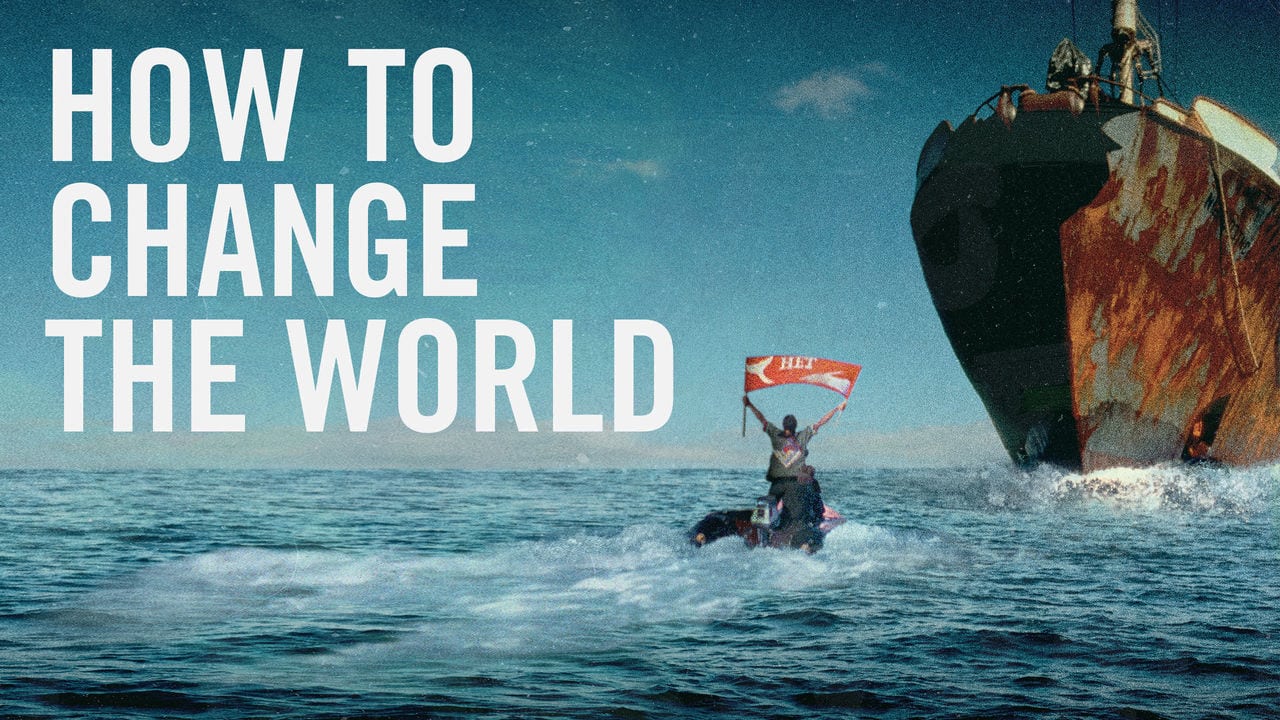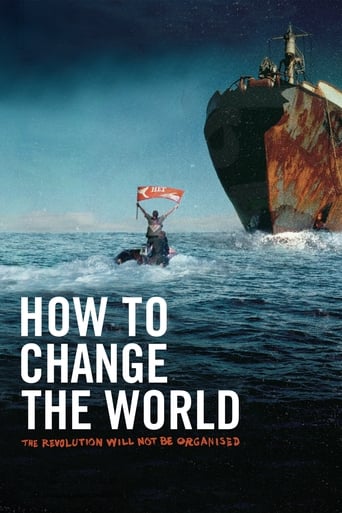


This well presented and important documentary focuses on the creation of the environmental group Greenpeace, in 1971, as well as its initial leader Canadian Bob Hunter, on whose writings the film is based, and who died in 2005.Aboard a small fishing boat filled with activists, mostly from the Vancouver, British Columbia area, and headed for Amchitka Island, Alaska to protest a planned nuclear bomb test, the name Greenpeace was coined by Bill Darnell. The name would signify the unification of the peace and environmental movements at the time. Although eventually turned back by the U.S. Coast Guard, the voyage would garner essential publicity for the group.Greenpeace would go on to focus on using dramatic, but non-violent actions, to draw the attention of the world to the decimation of the whale population by international whale hunters. The actual footage of the small but speedy Greenpeace Zodiac boats trying to interfere with a 9 vessel Russian whaling fleet, and the subsequent shooting of a harpoon just 15 feet above the protesters by the Russians is an amazing part of the movie. When the film of this occurrence would reach the global media, it would bring instant worldwide attention to the activists' cause, and the Greenpeace crew members were greeted as conquering heroes upon their return.Greenpeace would begin to sprout numerous offshoot branches as a result, and would continue to be active in the "save the whales" cause, as well as other important environmental issues such as the annual Newfoundland seal hunt. As with many organizations, Greenpeace would eventually suffer form internal dissension, and Hunter, as well as other early leaders of the group such as Paul Watson and Patrick Moore would eventually leave the organization and go their separate ways. Greenpeace International would eventually emerge as the central coordinating body for the group.All in all, I thought this documentary, directed by Jerry Rothwell, kept me engaged throughout with good pacing, and it presents an important part of history to the viewer. To note, the movie does contain some startling and graphic scenes of animal slaughter during the whale and seal hunts.
... View MoreSTAR RATING: ***** Saturday Night **** Friday Night *** Friday Morning ** Sunday Night * Monday Morning In the early 1970s, a group of activists, lead by the enigmatic Bob Hunter, got together and formed the Greenpeace movement, initially in response to President Nixon's testing of nuclear weapons on the island of Amchitka, but then interspersed with the opposition to whale poaching in the ocean, followed by the news of baby seal clubbing. The group formulated into a much larger organization, and conversely gained more discontent from the authorities, before internal fallout lead to each of them drifting their separate ways.When you think of Greenpeace these days, it feels amalgamated with a bunch of other charities, of the type that those in town centres spring out and try to strong-arm you into signing up for. Being an environmentally themed charity, it lay the foundation for the term 'tree hugger' (which is even mentioned in the film!), used in a generally derogatory manner these days. But, in a time when it felt more rewarding to be in a group and try and do good for others rather than the self, this absorbing documentary highlights how these guys went about their endeavour.Whatever your politics, you can't help but admire their tenacity, setting out as a group in their rickety little boat, risking life and limb to highlight the plight of those further down the food chain. They were a group of men (and women) sure of their convictions, with the idea, as the title implies, of changing the world, something that seems to have evaporated into apathy in this day and age.Jerry Rothwell has tapped into a part of history that those with an interest in ecological matters and the environment could take some great things away from. ****
... View MoreIn 1971 a group of friends in Vancouver got together to do something about President Nixon's plan to detonate a five mega ton nuclear device on Amchitka in The Aleutian chain of islands. They had nothing but an idea and a load energy. They put together a run down boat and headed off to stand up to America's might. Slowly the World caught on to what was happening and eco activism suddenly started to become hip and more importantly it made the news headlines.The de facto leader was Bob Hunter an enigmatic and very driven man who saw where the next battleground would be and that was to save the planets' biggest sentient beings – the whale. The film follows how a group of friends beliefs awoken a World's conscience to what we were, and still are, collectively doing to destroy our planet. The sleep walking into a frazzled and broken future started to come to an end.The film has archive footage with recent interviews with many of the players from those early days. The footage contains some very upsetting scenes of whale slaughter and the so called 'culling' of baby seals. One scene moved me to tears of a mother seal agonising over her little pups death. I have always been a supporter of Greenpeace and have campaigned in the past to save the whale as well as other issues that are close to my heart. This film made me get back some of the zeal that had eroded over the passing of years. I can not recommend this film enough, if you think ecologists are a bunch of tree hugging hippies who smoke too much pot; then watch this and think again – completely essential viewing.
... View More